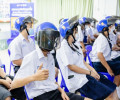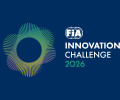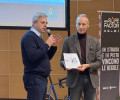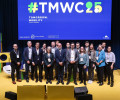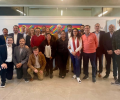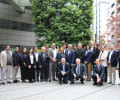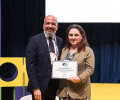FIA REGION II ORGANISES YOUTH ENGAGEMENT IN ROAD SAFETY WORKSHOP
On 8 April, FIA Region II organised the second ‘Heads Up!’ workshop (in a series of five) for the FIA Clubs from Asia-Pacific. This workshop, dedicated to youth involvement in road safety, aimed at sharing information, knowledge and tools around youth engagement in daily practices but also served as a great opportunity to strengthen a knowledge-sharing network among FIA Region II Clubs in the field of road safety.
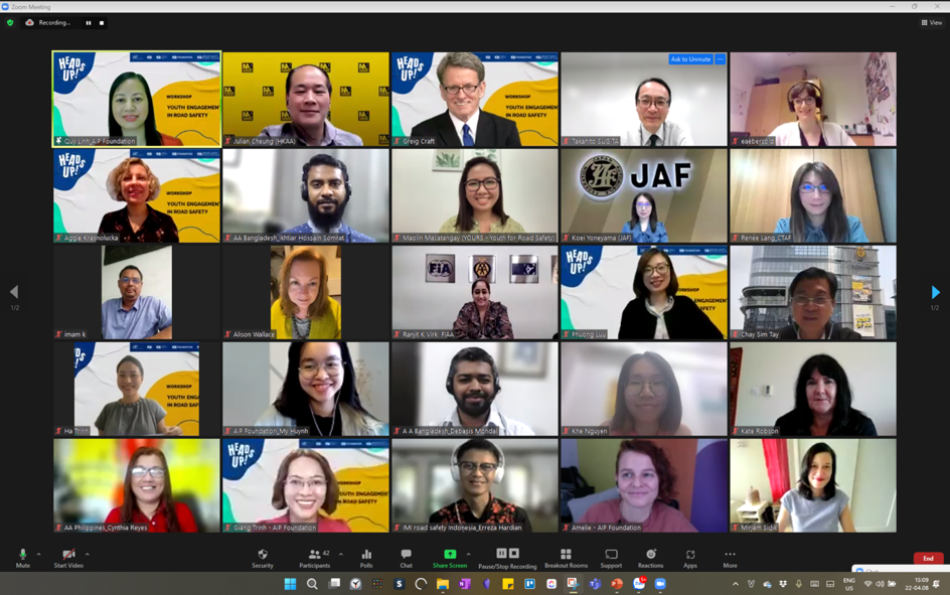
Moderated by AIP Foundation National Programme Director Quy Linh Nguyen, the workshop was opened by FIA Region II President Greig Craft. After thanking the numerous participants, Craft came back on the ‘Heads Up!’ youth-led project that empowers university students to create an innovative and regionally relevant public awareness campaign. He insisted on the fact that despite being the most vulnerable population among road users, especially in Asia-Pacific, youth are usually excluded from influencing and shaping road safety policies. He also emphasised the power of young people who are, according to him, the most effective advocates for road safety amongst their peers. “In my capacity as FIA Region II President, I am committed to work towards strengthening an inclusive knowledge-sharing network as well as developing sustainable initiatives and strategies to enhance youth empowerment in global road safety. We want and need younger generations to engage in campaigns for educating the community and pushing for change on issues that affect them the most,” Craft declared.
FIA Foundation Programmes Manager Aggie Krasnolucka then took the floor to highlight the strong influence young people have already had and continue to have on the global political agenda, for instance concerning climate change and sustainable mobility. Krasnolucka also put forward the work of the FIA Foundation and their programme partners to involve young people in the process of policy making and mentioned the efforts of the Global Youth Coalition for Road Safety, a movement established by YOURS with 300 young leaders from across 75 countries, as well as the FIA Foundation ongoing advocacy work to organise the ‘Global Forum for Adolescents’ which is now planned for September-October next year. After shedding light on different good practices, Krasnolucka highlighted a striking figure: “We currently have the largest youth population in history: 42% of people are under the age of 25. In South-East Asia and Sub-Saharan Africa, the number of people aged between 12 and 24 has risen to 535 million in 2015, almost half the global youth population. This is why empowering and engaging with young people is key, not only to strengthening advocacy for safe system approach (something that is obviously core and key to our community) but also in efforts to dismantle other structural barriers to change and this is something the world desperately needs at the moment.”
FIA Global Advocacy & Partnerships Manager Estelle Aebersold then gave an overview on the FIA Youth Mobility Strategy, which was developed after the World Council for Automobile Mobility and Tourism of July 2021, saying that “Youth engagement has become a critical area in which the FIA wants to engage with its Member Clubs as today’s world is home to the largest generation of young people in history, 1.8 billion.” Aebersold came back on the establishment of a Youth Mobility Working Group including the Presidents of the FIA Mobility Services and Policy Commissions and FIA Clubs’ representatives issued from different countries: Colombia, Uruguay, the Netherlands, Canada, New Zealand, Bangladesh. Targeting the 16 to 25-year-olds, the FIA Youth Mobility Strategy aims at enabling FIA Member Clubs to attract, involve and retain new members, as well as engaging youth to promote safe and sustainable mobility and working with them on development issues. To achieve these goals, the FIA will produce toolkits and communication guidelines, and will identify key global partners to support FIA Member Clubs wishing to engage with young people. The proposed framework, going from November 2021 to the end of 2022, is made of four phases: mapping; learning; testing; attracting & retaining. Aebersold detailed the first two phases, insisting on the importance of collecting good practice and case studies from FIA Member Organisations and on the need to market search the perception of youth towards safe mobility issues.
The floor was then given to Youth for Road Safety (YOURS) Communications Manager Maolin Macatangay who presented the organisation’s activities and main goals. YOURS is a global NGO that was was set up in 2009, two years after the first World Youth Assembly for Road Safety held in 2007. It focuses on empowering young people to address road safety issues, eventually creating the Global Youth Coalition for Road Safety which unites young road safety advocates. YOURS focuses on three key areas: youth empowerment; advocacy; and work with policy-makers. After reminding that about one third of the people dying on the road every year are young people aged between 15-29, Macatangay insisted on the necessity to address that tragedy by involving youth and stop seeing youth as a problem for road safety but as a key player, an asset when it comes to finding the solutions to make roads safer for all. “We need to stop blaming young people and start protecting and engaging them. This resonates with the safe system approach that says that every single sector within the society needs to be engaged and involved so that we can be safe, so that we can ensure road safety not just for young people but for everyone,” she said. To achieve that, YOURS is empowering youth through access to resources, capacity development and advocacy opportunities, and by giving them a platform to unite. Macatangay highlighted the key role played by the Global Youth Coalition for Road Safety. This network gathering individual youth and organisations in an informal member-based structure, with a focus on meaningful youth participation and safe mobility, enables young people to demand and deliver road safety. To this day, the Youth Coalition counts more than 900 members from more than 100 countries and engages over 2,500 youngsters. Macatangay then explained the support structure of the Youth Coalition that relies on funding, capacity development and meaningful partnerships. Local Actions is one of the tangible actions given to members who want to implement local short-term or mid-term grassroots actions aiming to address the most pressing safety issues in their communities or countries. This year, YOURS, through the Global Youth Coalition, is supporting and funding 17 projects in 15 countries led by youth leaders in the field of advocacy, awareness, community mobilisation, and peer-to-peer education.

 Facebook
Facebook Twitter
Twitter